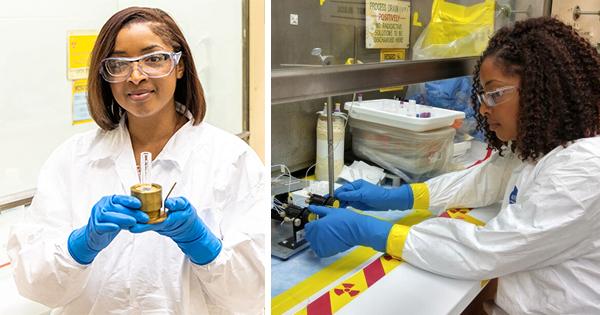Clarice Phelps, a graduate of Tennessee State University and an alumna of an HBCU, who etched her name in history in 2022 as the premier Black woman to contribute to the discovery of an element on the periodic table.
Her groundbreaking achievement led to the identification of Tennessine (Ts), classified as element 117 within the halogen group.
The journey to securing a place on the periodic table spanned two decades, as Phelps affirmed, recounting, “Taking a seat at the periodic table didn’t happen overnight, it was actually a 20-year journey,” as reported by News Channel 5.
Growing up in Nashville, Phelps exhibited an early fascination with chemistry, nurtured by her mother’s gift of a microscope. Her youthful experiments in the family kitchen kindled a passion that flourished through high school chemistry classes.
In 2003, Phelps earned her bachelor’s degree in chemistry from Tennessee State University before advancing to pursue a master’s in Nuclear and Radiation Engineering at UT Austin. Her four-year tenure in the Navy saw her applying her chemical expertise to manage radioactive materials.
Continuing her odyssey at the Oak Ridge National Laboratory, Phelps spearheaded efforts in chemical purification. The refined substances were dispatched to Germany and Russia for their utilization as target materials in the production of atomic number 117 (Ts).
The confirmation of Tennessine’s addition to the periodic table came in 2016. However, it wasn’t until 2019, with the acknowledgment from the International Union of Pure and Applied Chemistry (IUPAC), that Phelps learned of her historic distinction as the first Black woman to achieve such a milestone.
“I had to Google it, and I still was in disbelief. However, I thought about me — as a little girl, desperately looking for someone like me in science who was an inspiration, and it changed my perspective,” Phelps reflected.
Currently pursuing a doctorate in Nuclear Engineering, Phelps remains optimistic that her breakthrough will inspire and uplift African American and other marginalized communities within the scientific realm.
SOURCE: blacknews.com


